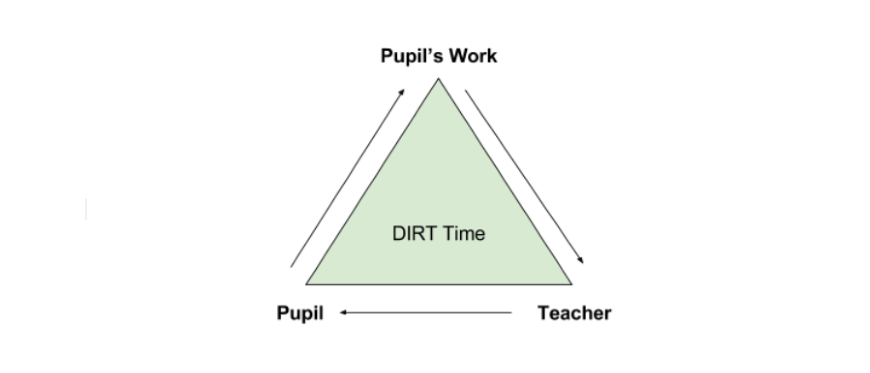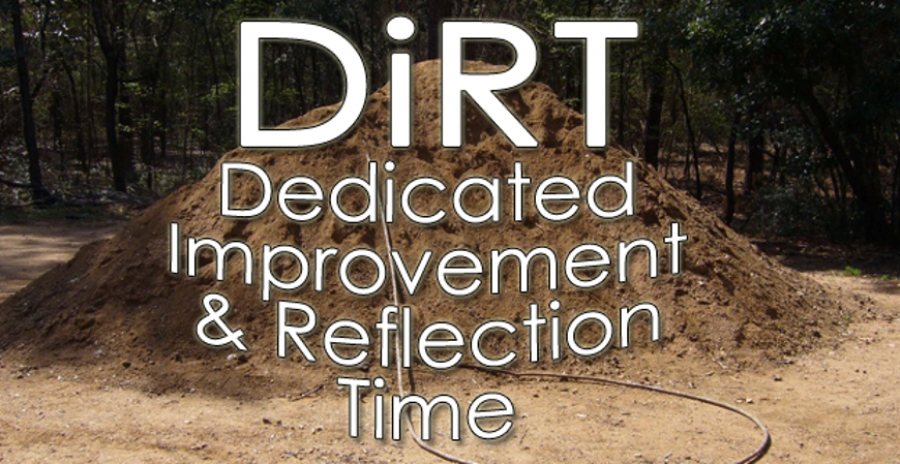
Dedicated Individual Reflection Time is something which my good friend Ryan Lewin introduced to me a few years ago. I have to admit, when I was first introduced to this concept I was part of an audience thinking “Okay, here we go again, time for another gimmick” (probably similar to the audience reading this latest article of mine!). However, for some strange reason - most probably due to Ryan’s persuasive nature - he convinced me to give DIRT time a go. The impact of taking his advice on board has been invaluable, as DIRT time has become the epicentre of any lesson which I teach; it continually helps my pupils to move forward with their work.
"When I was introduced to this concept, I thought ‘Here we go, another gimmick’."
DIRT time does this as it gives pupils a specific structure as to when they need to stop, think for themselves and make their own decisions as to where they want to go next with their own learning. This process is quite an easy process to employ in a classroom environment, and it is all based around the notion of feedback. All too often I get annoyed when I see lots of feedback that we as educators give our young people - not because we don't care or don’t give them good feedback, but because we often think that in order to help our pupils develop we need to tell them what they need to do in order to improve.
This, in fact, is wrong. As educators, our job is to facilitate learning, and if we're going to do this effectively and successfully, it needs to start with ensuring the feedback which our learners receive during lessons is designed to make them become fully-independent learners.

Therefore in order to give feedback which embraces this notion, I no longer give my pupils a traditional EBI (“Even better if…”). Instead, I give them a question which they must answer. This question is unique to them as an individual, and this means that learning is automatically differentiated. With these questions I also ensure pupils can't just write a comment such as “thanks sir”, as the questions normally involve them having to complete a particular task. At the same time, I also make sure that pupils understand and appreciate as to why they need to answer these questions as opposed to being given static feedback.
"As part of their DIRT time they can research the question."
When writing these questions and issuing these tasks, it is important to ensure pupils link to previous learning. As such, an EBI I could give to one of my pupils could be something like: “In order to improve, I can see that during the past few lessons you have been writing the word ‘internet’ with a small “i”. Can you explain to me as to why this isn't correct, and tell me why it is important you don't write it like this in the future, please?” (It isn't correct as the word “internet” with a lowercase ‘i’ means internetwork, which is something from the 70s and completely different from how we know the Internet today!).
With this EBI, it is unlikely my pupil will know the answer to their question, but as part of their DIRT time they can research it. Furthermore, once the pupil has completed this task, not only can they discuss their answer with me but they can also share it with their peers through a class discussion. This means that all pupils benefit from the one piece of feedback that one particular pupil has been given.
In my lessons the amount of time which I allocate for DIRT time varies. It’s not always at the same place in my lessons, as quite often I differentiate as to when pupils need to carry it out. This approach, I find, keeps pupils engaged in their learning and ensures they are fully receptive to the feedback they are given. Learning isn’t predictable, and when DIRT is given it is in order to help them move forward with their work.
Moving forward with a piece of work is more than just moving onto another task. This is why DIRT time isn’t a gimmick; it is a strategy which needs to be embedded over time for it to be fully successful.
In order to implement DIRT, it is important to remember that pupils must grasp that in order to make progress with their work, they must embrace the triangulation between the teacher, their work and any feedback they are given. DIRT time is designed to feed forward, as opposed to a traditional EBI, which just feeds back.
Do you use DIRT in your classroom? Let us know below.


















